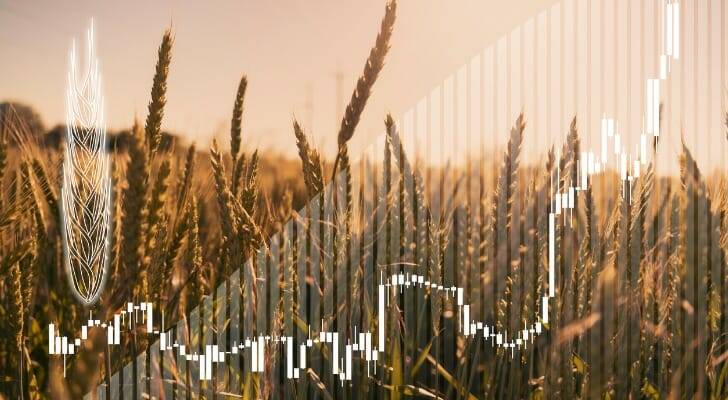Investing in commodities can be an exciting and profitable venture, and one such commodity that has stood the test of time is wheat. With its essential role in global food production and consumption, investing in wheat commodities can provide a unique opportunity for diversification and potential gains. In this guide, we’ll explore the background of wheat investing, different methods of investing in wheat, top tips for successful wheat investments, reasons to consider trading wheat as a commodity, and how you can learn commodity trading through a reputable commodities trading academy.
Background of Wheat Investing
Wheat has been a staple in human diets for centuries, making it a fundamental agricultural commodity. As a versatile crop used in various food products, from bread to pasta, wheat’s demand remains steady even in changing market conditions. This stability forms the foundation of its investment appeal. The value of wheat can be influenced by factors such as weather conditions, global supply and demand, and geopolitical events.
Different Ways to Invest in Wheat
- Futures Contracts: One common method of investing in wheat is through futures contracts. These contracts allow investors to speculate on the future price of wheat without owning the physical commodity. It’s essential to understand that futures trading involves risk due to the volatility of commodity prices.
- Exchange-Traded Funds (ETFs): Wheat-focused ETFs offer a way to invest in wheat indirectly. These funds typically hold a diversified portfolio of wheat futures contracts. Investing in ETFs provides exposure to wheat’s price movements without the complexity of trading futures.
- Stocks of Agricultural Companies: Another avenue for investing in wheat is by purchasing stocks of companies engaged in wheat production, processing, or distribution. This approach allows you to benefit from the performance of the wheat industry without directly trading commodities.
Top 5 Tips for Investing in Wheat
- Stay Abreast of Market Trends: Keeping a close watch on wheat market trends is paramount. Stay informed about global supply and demand factors, weather patterns, and geopolitical events that can impact wheat prices. This knowledge will help you make informed decisions based on real-time information.
- Diversify Your Portfolio: Diversification is a key principle in investing, and the same holds true for wheat commodities. Consider spreading your investments across various wheat-related avenues, such as futures contracts, ETFs, and agricultural company stocks. Diversification helps mitigate risks and reduces the impact of a single investment’s poor performance.
- Risk Management is Vital: Commodity markets can be volatile, and wheat is no exception. Set clear risk management strategies, including defining your risk tolerance and setting stop-loss orders when trading futures. Being prepared for potential losses is as crucial as aiming for gains.
- Understand Supply and Demand Dynamics: Wheat prices are highly influenced by supply and demand imbalances caused by factors like weather events, pest outbreaks, and global consumption patterns. Learning to analyse these dynamics will help you anticipate price movements and capitalise on trading opportunities.
- Continuous Learning: The world of commodity trading, including wheat, is ever-evolving. Commit to continuous learning by staying updated with industry news, refining your trading strategies, and considering educational resources such as a commodities trading academy like Queensway Academy. Building a strong knowledge foundation will empower you to make confident decisions.
Reasons to Trade Wheat as a Commodity
- Inflation Hedge: Wheat, like other commodities, can act as a hedge against inflation. When the value of currency decreases, commodity prices, including wheat, often rise.
- Global Demand: As a dietary staple worldwide, wheat maintains consistent demand regardless of economic fluctuations. This stability can be attractive to investors.
- Supply and Demand Dynamics: Wheat prices can be influenced by supply shocks caused by weather events, pest outbreaks, or geopolitical issues. These factors can create price spikes, presenting trading opportunities.
Learn Commodity Trading with a Reputable Commodities Trading Academy
If you’re new to trading commodities or looking to enhance your skills, enrolling in a reputable trading academy like Queensway Academy can provide valuable insights. These academies offer courses on commodity market analysis, trading strategies, risk management, and the technical aspects of trading platforms. Learning from experienced traders can empower you to make informed decisions when investing in wheat and other commodities.
In conclusion, investing in wheat commodities can offer both seasoned and novice investors a chance to diversify their portfolios and potentially profit from the agricultural market’s dynamics. By understanding the background, methods, tips, and reasons for trading wheat, you can approach trading commodities with confidence and a well-informed strategy. Remember that commodities trading carries risks, so thorough research and continuous learning are essential to navigate this exciting market successfully.


